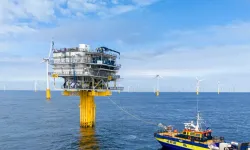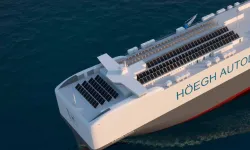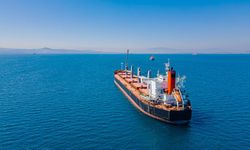In light of the ongoing Hamas-Israel conflict, Maritime Analyst Alp Kırıkkanat offers critical insights into the potential division of the Gaza Strip and the strategic implications for the Middle East and beyond. Kırıkkanat emphasizes Israel's contentious stance, describing it as inhumane and rooted in a settler conception of modernity based on colonialism.
As resistance grows, so does the intensity of violence, raising concerns about the sustainability of the situation. Kırıkkanat delves into the involvement of external actors, including Iranian-backed Hezbollah from the north and Houthi attacks from the south, impacting maritime operations in the Red Sea.
Highlighting the repercussions of these attacks, including temporary suspensions of voyages and rerouting of commercial ships, Kırıkkanat notes the ripple effect on container shortage, increased freight charges, and rising food and energy prices.
Also, Kırıkkanat states: “If you pay attention to this circumstance, you will notice that the outcomes are reflected in the seas and vital straits. Looking at the issue from this perspective; it is possible that new and distinct security formations and naval force units will emerge in the Eastern Mediterranean and Indian Sea arcs. Furthermore, there is a concerted effort in this direction. By citing marine shipping security, these power units can transform into an apparatus that will facilitate some shaping over time in maritime jurisdiction areas. With the attacks, certain international maritime companies have temporarily suspended their voyages in the Red Sea; in the short and medium term, this means that alarm bells are ringing in terms of maritime transport. Becoming unsafe situation of The Bab al-Mandeb passage means that in the north, the Suez Canal is partially inoperable. It is stated that more than 50 commercial ships have already shifted their course to the Cape of Good Hope. This means a container shortage, increased freight charges, and increased food and energy prices.”






